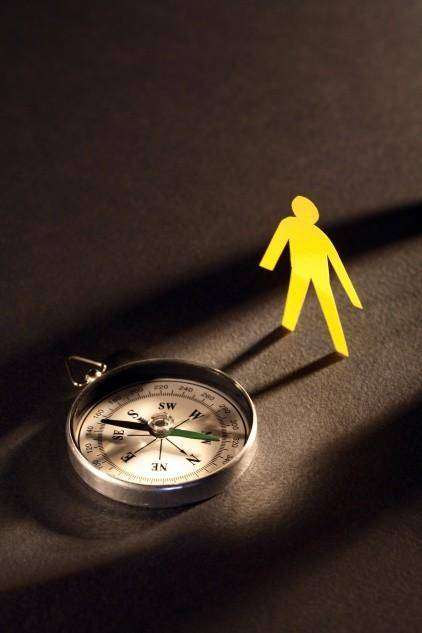
Nomads are traveling constantly, and it can get confusing when your entire environment is always changing. By improving your orientation, you’re more likely to feel at home at your new location. Good orientation will also save you valuable time, and is especially helpful in places that aren’t that safe where you don’t want to be wandering around clueless (check this link for more details on risks of traveling). We’re always going to be a bit lost in a new place, but with these following steps, you’ll be able to get to grips much more easily.
- Use repeated landmarks. A mountain range, rivers, boulevards, monuments. Using those landmarks to will help you position yourself relatively in the place you are at. The trick is to pick those central landmarks which you can spot from a long way away and are evident from many different points.
- Walking. Try walking more – the more you walk, the more your orientation will improve. Walking will make you more conscious in comparison to using another method of transport, since it gets you in touch with the road and your surroundings – and besides, it’s great for your health.
- The path less travelled. Choosing the unorthodox path will do your orientation good. If you know your general direction, find new roads to get there instead of just going in the same path you always use. Not only will it improve your orientation in new places, but it will also help you explore and know more of the place you are at.
- Consciousness. Drifting off when you walk is easy. But when you walk consciously, really thinking about what you’re seeing around you instead of thinking about nothing, you’ll start remembering street names, hidden shops, buildings and noises. Those little clues will help you with improving orientation since you are bound to run into one of the things you memorized when you are lost and magically understand where you are at. Being conscious will also make your life so much easier at your location since you will know it better.
- Reverse engineering process. When you leave your location (e.g. your hostel), you’re obviously not lost. The problem starts later, when you can’t remember how to get back. With the reverse engineering process – knowing and remembering the turns you have taken- you’ll be leaving a breadcrumb trail to always lead you back home. Always look back, see your path from different angles so you can memorize how your return trip will look like on the way back.
- The sun. It sets in the east and rises in the west, and with this knowledge can help you reach your destination if you more or less know where is the direction of your destination. If you are the outdoor type, star knowledge is invaluable.
- Documentation. Always know the address of your hostel, or the important places you’re going to. Keep them written down, not just in your memory.
- Maps. Taking the time to learn the general look of the city map will help you connect the dots and understand how the city is divided. Use printed or online maps to navigate. Just don’t forget that a printed map never runs out of battery, although it can’t tell you your current location.
- Marking maps. Before arriving to any new city, I download its offline google map and take a screenshot of the locations I need to go to on google maps with the exact address.
- Technology. With GPS tracking on a smart phone, you’re never lost, and you can even have your routes plotted out for you. A compass is also a valuable tool to help you out if you can’t get online.
- Follow others. If you’re lost, and need to arrive to a main location, you can always gamble and follow the traffic (cars or people). Chances are that if you are driving and looking for the city exit, or if you are walking and looking for the train station, following a steam of people will more likely get you there.
- Don’t be shy. Ask questions. Especially as a traveler, people will want to help you, and it is also an amazing way to make local friends in the process.
Unless you’re blessed with perfect, innate orientation skills, using the above tips will save you time and trouble, and will help improving orientation in new places. Just remember – being lost in new places sometimes brings the best moments.
To hear an audio recording of this post check the link below:



0 Comments